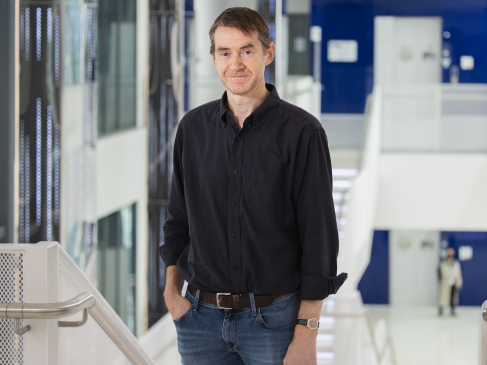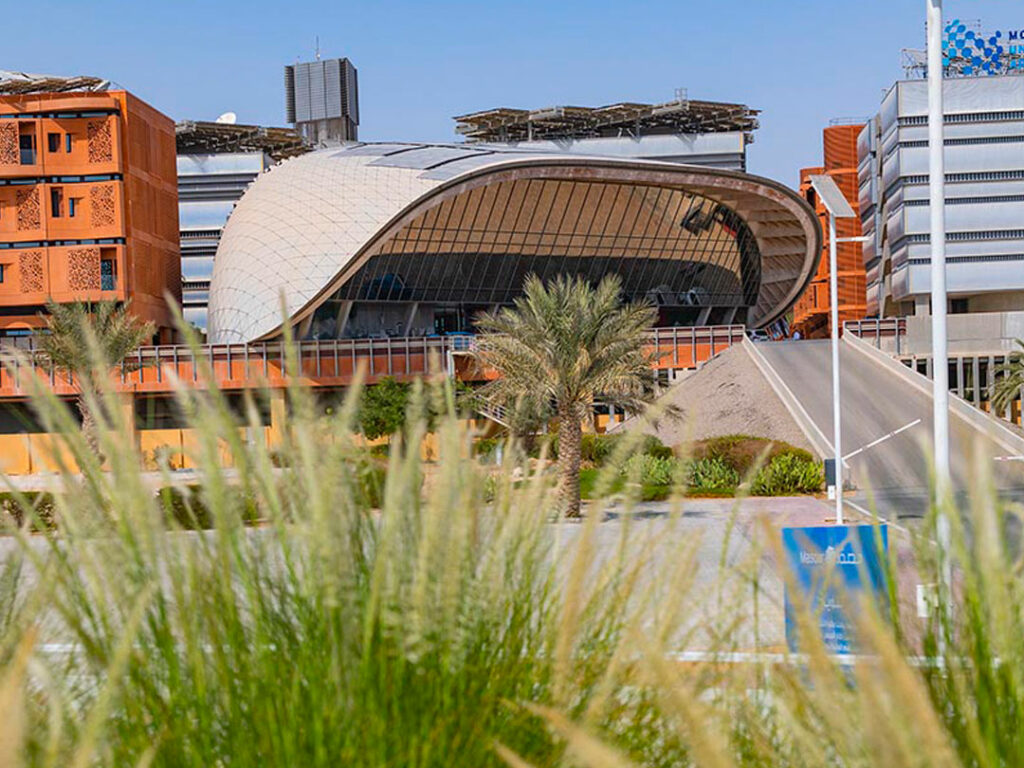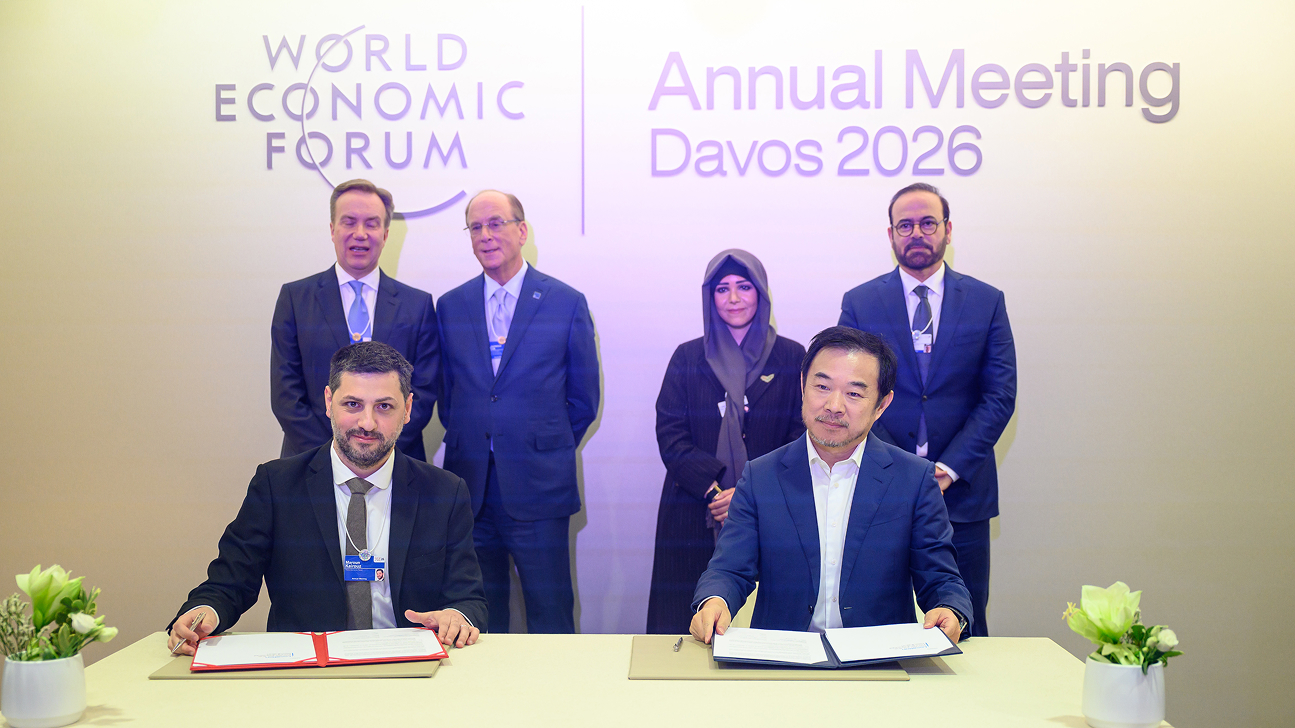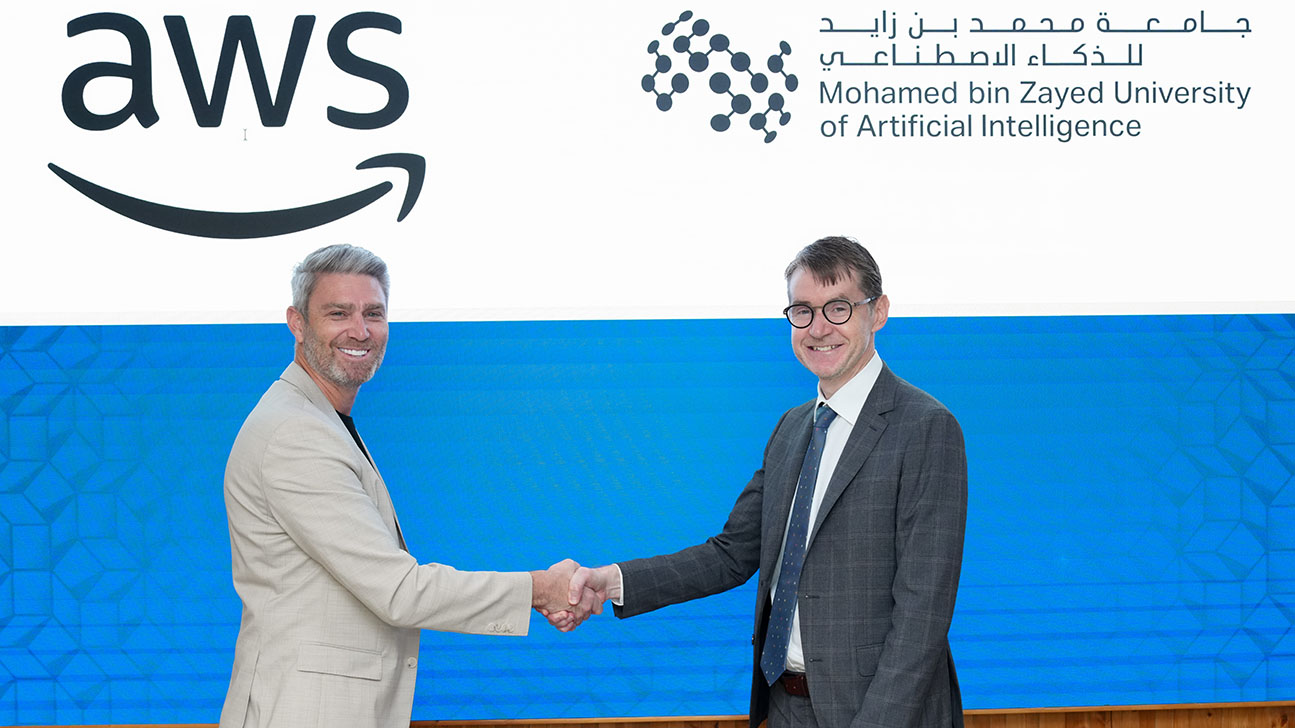Natural language processing is at the top of MBZUAI’s agenda
Friday, August 26, 2022

Original article published in “Wired Middle East” on August 24, 2022
THANKS TO THE ubiquity of virtual assistants such as Google Assist, Siri, and Alexa, many of us are vaguely familiar with the concept of natural language processing (NLP), which seemingly has enabled our resourceful new gadgets to understand our requests.
Yet this mashup of linguistics, computer science and AI actually involves very little language understanding at present, according to one of the leading experts in the field, Professor Timothy Baldwin.
“Does Google Translate have understanding of text?” Baldwin muses. “Absolutely not. It just has very powerful means of identifying patterns of semantic equivalence—of Arabic and English say—to deftly patch together enough information to produce a translation.”
In the near future, though, he believes AI technology may be so advanced, machines will not only grasp the nuances of even the most obscure language and dusty dialect—they could even recognize when humans are joking.
 Baldwin is Associate Provost for Academic and Student Affairs, and the Acting Department Chair of the new NLP department at the Mohammed Bin Zayed University of Artificial Intelligence (MBZUAI) in Masdar City, Abu Dhabi. Famously, the UAE has embraced AI in a huge way. As well as launching the world’s first graduate university dedicated to artificial intelligence, it was the first country to appoint a government minister for AI and is now enthusiastically pursuing a strategy to integrate AI technologies into everything from governance and infrastructure to the day-to-day living experiences of its citizens.
Baldwin is Associate Provost for Academic and Student Affairs, and the Acting Department Chair of the new NLP department at the Mohammed Bin Zayed University of Artificial Intelligence (MBZUAI) in Masdar City, Abu Dhabi. Famously, the UAE has embraced AI in a huge way. As well as launching the world’s first graduate university dedicated to artificial intelligence, it was the first country to appoint a government minister for AI and is now enthusiastically pursuing a strategy to integrate AI technologies into everything from governance and infrastructure to the day-to-day living experiences of its citizens.
It is the breadth of opportunities to help shape this AI-enhanced future that so excites Baldwin, who previously spent 17 years at The University of Melbourne, his primary research focus on deep learning, algorithmic fairness, computational social science, and social media analytics.
“MBZUAI is part of a very ambitious agenda, on the part of the UAE government, to grow a local AI industry in a short period of time”, he says. “The aim is to be one of the top universities for NLP within 12-18 months.”
One obvious key area that Baldwin and his team are working on is Arabic NLP. This throws up all sorts of complications, he notes, partly because Arabic is not a single language. As well as Modern Standard Arabic, a different dialect of Arabic is spoken in Egypt and Morocco, for instance. And finally, on social media, there is a lot of mixed lingo, which swerves between Arabic and English. “The challenge is to build models robust enough for machine language understanding that are also faithful to what young Emiratis actually write in their tweets.”
Baldwin says that his students at MBZUAI benefit not only from world-class facilities and the caliber of the academics at the lecterns, but from a curriculum that focuses on solving real-world problems. “MBZUAI is working with local industry, to ensure that our students are getting the right training and internships to be able to contribute towards the acceleration of AI—not just in research—but in terms of AI output and the AI economy in the UAE,” he explains.
One crucial area, for instance, is clinical decision support—where NLP is increasingly used to collate and interpret data in order to help clinicians work out the best treatment plans for patients. “Once you’ve formed an initial diagnosis, you need to make the best decision relative to the specifics of that patient. AI can assist in distilling the latest clinical trials and medical literature into something the clinician can digest faster,” says Baldwin. “Machine learning can process the particulars of the patient, recent breakthroughs, and other parameters, and can provide options for primary treatment plans. It can also identify potential risks based on a patient’s clinical notes.”
Yet it is not only medicine where the impact of NLP is increasingly being felt. Language-based tech applications are booming in every field, Baldwin points out, whether these are cheery chatbots on e-commerce and banking websites, or earnest virtual assistants on smartphones. “It is now hard to imagine a lot of the tools that we’re using daily without NLP,” he says.

Illustrating the scope of Baldwin’s academic work on NLP—not to mention the size of the challenges ahead—the professor presented three separate scientific papers at the recent ACL 2022 in Dublin, one of the year’s biggest AI conferences.
His first paper entitled: ‘The patient is more dead than alive: exploring the current state of the multi-document summarization of the biomedical literature,’ shows what a long way we still have to go before we can identify important linkages, warning signs, and opportunities to improve healthcare through the automatic summarization technology, he says.
Similarly, in his second paper, Baldwin and 11 co-authors from around the world, illustrate the difficulty of developing language technologies for more than 700 local languages in Indonesia, where annotated data is not available.
Likewise, his third paper, also with co-authors from The University of Melbourne, demonstrates that referential language is a core component of translating procedural texts, such as recipes and chemical patents, into structured workflows.
As Baldwin explains it: “It’s relatively easy to tell a five-year-old how to make a peanut butter sandwich, as they implicitly understand things like how to use a knife or where the peanut butter should be spread. It is quite a bit more challenging to tell a computer how to do it because of the amount of implicit knowledge there is in procedural text.”
We have found that “bridging” terms are crucial to understanding procedural language—the things we take for granted, such as bread changing state from a loaf to a slice, and then into one side of a sandwich.”
In a nutshell, he believes that we can never give a machine too much context when it comes to human language. “How might we describe a chicken to a computer?” He asks mischievously. “Does it walk? Does it lay eggs? If it is in an oven is it also a chicken? If someone is scared how can they also be a chicken? It is only by bombarding AI with context that we will raise the glass ceiling of what it can eventually do for us.”
Related
MBZUAI and Minerva Humanoids announce strategic research partnership to advance humanoid robotics for applications in the energy sector
The partnership will facilitate the development of next-generation humanoid robotics tailored for safety-critical industrial operations.
Read MoreMBZUAI signs agreement with World Economic Forum as Centre for the Fourth Industrial Revolution (C4IR)
MBZUAI will launch the Centre for Intelligent Future as a global platform – connecting AI research with.....
- economic ,
- humanity ,
- social ,
- WEF ,
- World Economic Forum ,
- partnership ,
MBZUAI and AWS collaborate to drive research, skills, and innovation in AI
MBZUAI has signed a multi-year collaboration agreement with Amazon Web Services to advance AI research, enhance technical skills,.....
Read More

